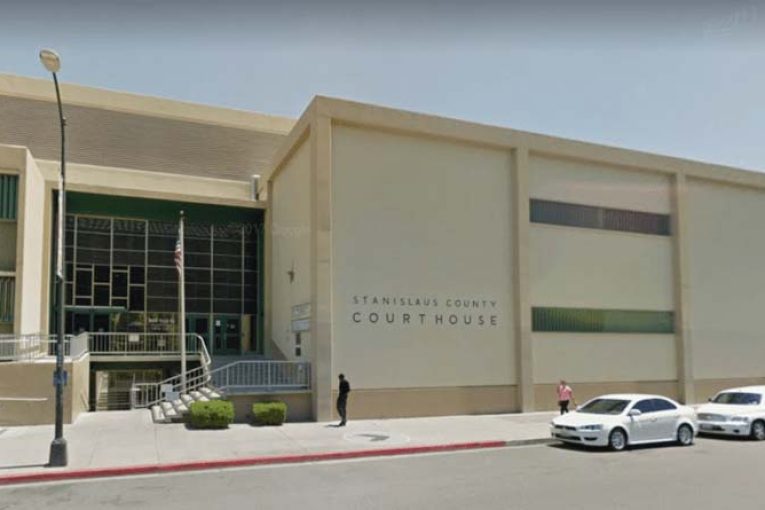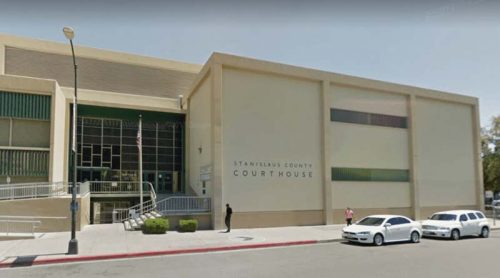

By Perla Chavez and Jonathan Nunez
MODESTO, CA — In a Stanislaus County Superior Court trial Wednesday, the integrity of an arresting officer’s conduct was questioned by the defense when body cam footage revealed an intense interview between the accused and the officer.
While the prosecution was examining the officer, the officer’s interview was shown—the officer insisted the interview was more of an “educational” approach rather than a “confrontational” one.
Because of the accused’s actions of allegedly threatening another person with a deadly weapon, the officer explained his body cam footage shows him trying to “emphasize the importance of gun safety.”
The body cam footage shows the officer talking to the accused, who allegedly encountered their neighbors while they were outside, and a dispute occurred. The accused claimed to have pulled out their firearm to confront the neighbors who approached them.
Asserting that the interaction served as an educational moment, the officer implied that the accused needed to be more responsible. He said, “If somebody points an unloaded gun at me, they’re getting shot.”
Since the accused informed the officer the gun was kept inside the house, the officer claimed the accused couldn’t have been in fear for their life if they went back outside. The officer added the situation was not dealt with correctly if the accused, “grab(ed) a gun and point(ed) a gun at them.”
The accused did not mention pointing a gun at them and tried to explain, when the officer interrupted, “That’s what you said, you told me you did.” An additional voice from the body cam footage replied, “[they] did not point the gun at them.”
In the body cam footage, the officer began to explain his own theory to the sequence of events. While illustrating his own theory to the actions of his suspect, the accused can be heard trying to interrupt the officer by exclaiming, “That’s not what happened!”
After the body cam footage was shown, defense attorney Justin L. Ward got out a blank paper whiteboard and started his cross-examination. Ward illustrated the basics of police procedure by writing that “an investigation has to be impartial, neutral and objective.”
Within the illustration, Ward asked if the opposite of “an impartial, neutral and objective investigation” would be a “biased investigation?”
When the police officer agreed to his conclusion, the defense then promptly asked the officer, “Did you choose to conduct an investigation that was supposedly not biased?”
While the officer claimed he did not conduct a biased investigation, the defense simply reiterated that the arresting officer ultimately had a choice in the matter, and the officer replied by stating, “I made a choice to arrest (the accused).”
Attorney Ward asked about the interview training officers receive and whether it is standard to interview individuals one at a time. The officer claimed not everyone does; however, it is an option.
When asked if he agreed that it’s difficult to interview individuals in a group setting, he answered it is not a problem if they are quiet and it might actually make them comfortable and confident.
However, Ward cited other body cam footage where the officer was conducting the neighbors’ individual interviews in a group setting and people other than the individual being interviewed were chiming in on multiple occasions.
Despite the officer claiming they allowed the neighbors’ interviews to be conducted together because it was a traumatic experience and he knows his uniform and authority could be intimidating, the defense said the accused was asked to step away from their family during the second interview.
Defense attorney Ward confirmed the officer asked the people around the accused to go inside, but the neighbors’ family was not asked to go inside during individual interviews.
The officer claimed this was acceptable because he asked her to step away, and she had the right to say no.
Defense Attorney Ward stated, “As you know, in your training experience, a lot of people don’t know what their rights are when dealing with the police, true?” to which the officer responded, “I cannot predict what they know.”
The jury trial will be ongoing.